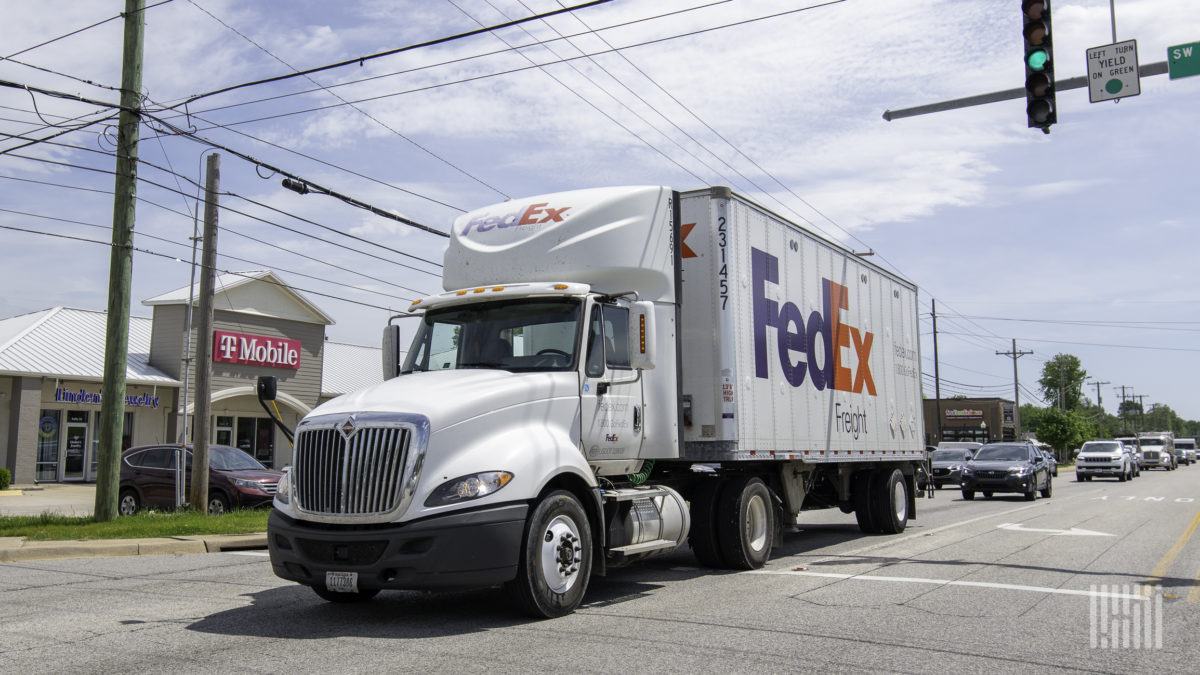FedEx Freight, the less-than-truckload arm of FedEx Corp. and the nation’s largest LTL carrier, said Saturday it will furlough an undetermined number of drivers starting in early December.
The furloughs are scheduled to last about 90 days, during which time affected workers will continue to receive health benefits and will be allowed to file for unemployment benefits in their respective states of residence. Some eligible employees will be offered permanent transfer opportunities to other markets that have hiring needs, the unit said in a statement.
The furloughs are expected to affect a small number of drivers, and not all facilities will be targeted, said Miranda Yarbro, a FedEx Freight spokesperson. The furloughs will be voluntary, Yarbro added.
“Because of our previous experience with furlough and with the incentives we are offering, we are expecting employees to volunteer to meet the business need,” Yarbro said in an email.
The unit employs about 45,000 people. It was not immediately clear how many drivers it employs.
The action was taken in response to slowing macroeconomic conditions that have impacted LTL demand in recent weeks, the unit said. The LTL segment, which has shown very strong growth coming out of the pandemic, has seen volumes level off recently due to economic uncertainty caused by high inflation and recession concerns.
FedEx Freight has been the best performer of FedEx’s (NYSE: FDX) three transport business units. Its two larger units, FedEx Express and FedEx Ground, have been hurt by high costs and slower-than-expected demand. FedEx Freight, by contrast, has focused on profitable growth and has been willing to shed unprofitable tonnage to achieve that goal.
In its fiscal 2023 first quarter, which ended Aug. 31, FedEx Freight’s operating income increased 67%. The gains were driven by actions to improve shipment yields, as well as the positive impact of higher fuel surcharges, the parent reported.
If you are a FedEx Freight employee with a story to share, email the reporter at [email protected].












Robert
@Mike regarding Owen’s comments about 32 years. Ok, got some new info. Arkansas Freightways became American Freightways in January 1993. In order to work at the company, 32 years; he would have had to work for Arkansas Freightways for 3 years; as I was incorrect about my statement that the switchover was in 1990. Yes, I am a perfectionist.
Robert
Today I saw a Fed Ex Freight straight truck where I normally see a day cab with a pedal trailer. Did a double take, as I see Fed Ex Ground straight trucks and occasional Fed Ex Express straight trucks. Only saw one Old Dominion day cab with like a 48 foot trailer and saw an old Yellow Freight day cab pulling a USF Holland trailer.
Here in my area, Roadway Express had a giant terminal right next to the interstate up until 2000 or so when they were bought out by Yellow. Yellow subcontracted or sold their terminal to Estes and moved in with Roadway. Then USF Holland moved into the north end a while back.
Freight is not what it used to be. Too many 3PL’s and logistics experts who don’t have a clue
Anthony soto
This why we have been seeing freight drivers in the Fedex ground terminals picking up loads. No work, slow.
Ratty
It’s gonna get worse when the cost goes higher. I’m reducing my orders and one company the shipping charges went up 3x and I flat quit ordering from them.